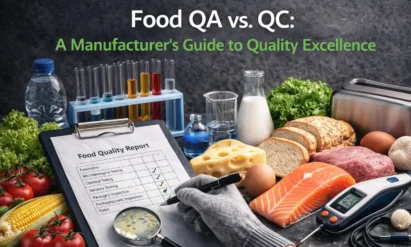What Are Different Types of Quality Management Certifications?
Sep 08,2025
Quality management certifications are vital in today’s competitive industries. They not only confirm an individual’s professional expertise but also demonstrate an organization’s commitment to high standards.
For quality assurance professionals, especially in the US and Europe, these certifications serve as proof of credibility and competence.
This article explains what quality management certifications are, why they matter, the systems and standards they are built upon, and how professionals can earn and maintain them throughout their careers.
What Is a Quality Management Certification?
A quality management certification is an official credential awarded by recognized bodies to professionals who have proven their knowledge in managing and improving quality across products, services, or processes.
Earning such a certification usually involves training and examinations that cover planning, quality control, assurance, compliance, and continuous improvement.
Certified professionals are seen as capable of strengthening processes, raising efficiency, reducing waste, and ensuring customer satisfaction, making them highly valued in multiple industries.
Importance of Certifications in Quality Management
Certification is crucial because it validates expertise and builds trust. For organizations, having certified employees or earning certification themselves enhances brand value and demonstrates a commitment to consistent quality. It also helps them meet regulatory requirements, maintain efficient systems, and reduce the potential for errors.
For professionals, the importance of certification is equally clear: it enhances career prospects, increases earning potential, and demonstrates readiness for leadership positions.
Certification also provides an advantage in the job market, helping job seekers stand out in industries where reliability and compliance are paramount.
Most Common Types of Quality Management Systems
The quality management certification landscape is influenced by a variety of frameworks. ISO 9001 is perhaps the most recognized certification globally, providing a universal standard applicable to nearly all industries.
In specialized sectors, ISO 13485 sets requirements for medical device manufacturers, while IATF 16949 focuses on automotive suppliers.
The aerospace and defense sector relies heavily on AS9100, while in the US, the FDA requires medical devices to comply with its quality system regulations at 21 CFR Part 820.
Beyond these standards, methodologies such as Six Sigma and Lean Manufacturing, which focus on data-driven process improvement and waste reduction, are often integrated with formal quality management systems to achieve even better results.
Global Standards for Quality Management
Quality is a global concern, so international standards ensure consistency across countries. The ISO 9000 series of standards, including ISO 9001, serves as a foundation for numerous organizations worldwide and establishes a common language for quality management.
Furthermore, industry-specific standards such as ISO 22000 for food safety, ISO 27001 for information security, and ISO 20000 for IT service management demonstrate how different industries can adapt global principles to their specific needs.
Concepts such as Total Quality Management (TQM) and frameworks like CMMI are also influencing practices, incorporating continuous improvement and customer focus into modern certification methodologies. These standards enable organizations in Europe, the US, and beyond to build trust and meet the expectations of international trade.
Most Popular Quality Management Certifications
When it comes to professional certifications, several names stand out. The Certified Manager of Quality/Organisational Excellence, offered by the American Society for Quality (ASQ), is designed for experienced leaders overseeing large-scale quality systems.
Six Sigma Green Belt and Black Belt certifications are among the most popular certifications for professionals focused on process improvement, with Green Belts managing small projects and Black Belts leading large ones.
For professionals focused on compliance and system inspections, the Certified Quality Auditor demonstrates auditing skills, while the Certified Quality Engineer emphasizes technical expertise in areas such as statistical control and reliability.
For those new to the field, the Certified Quality Improvement Associate offers a starting point.
Some specialized industries also offer certifications, such as the Certified Quality Professional (CPHQ) in healthcare, the Certified Quality Professional (CPGP) in pharmaceuticals, or the Certified Quality Engineer (CSQE) in software, providing tailored career development options.
Benefits of Being Certified in Quality Management
Certifications offer significant benefits to both individuals and organizations. For individuals, certifications provide formal recognition of their expertise, boost confidence in tackling complex projects, and enhance opportunities for advancement and salary increases.
For organizations, certified employees provide a structured approach that reduces risk, increases efficiency, and strengthens client trust.
In practice, certified professionals are often viewed as problem-solvers who deliver measurable results, whether it’s reducing defect rates, improving compliance, or saving costs through smarter processes.
Certifications also connect professionals to networks and communities for knowledge exchange and create opportunities for collaboration and professional development.
Selecting the Most Suitable Quality Management Certification
Choosing the right certification depends on how your career goals align with the course content offered by each program. Those aspiring to become leaders might pursue broader certifications like the CMQ/OE, while professionals passionate about statistical analysis and process improvement might find Six Sigma more valuable.
It’s also important to check prerequisites, as advanced certifications often require years of experience or prior qualifications.
Recognition and credibility are key: ASQ, IASSC, or ISO auditor certifications have global reach. Practical factors like cost, preparation time, and the availability of learning resources should also influence your decision. Reviewing job postings in your industry is a useful way to determine which certifications are in high demand and worth pursuing.
How to Earn a Quality Management Certification?
The path to certification begins with selecting the most relevant option for your career. Once chosen, the next step is to ensure eligibility by meeting experience or educational requirements.
Preparation usually involves studying a defined body of knowledge, supported by training courses, textbooks, and practice exams. After thorough preparation, candidates register for and sit the official exam, which may be delivered in testing centers or online.
Success results in earning the certification, but the journey does not stop there. Most certifications require maintenance, meaning that professionals must stay active in learning and development to keep their credentials valid.
Maintaining Quality Management Certifications
Maintaining certification is an ongoing responsibility. Professionals must stay current on evolving industry standards, often through workshops, conferences, or continuing education. Most certification bodies require renewal every few years, along with documented evidence of professional development.
Active participation in quality management networks and applying certified skills to real-world projects not only maintains certification validity but also solidifies expertise in the field.
In some cases, professionals pursue advanced certifications as their careers progress, expanding their knowledge and influence beyond existing certifications.
Conclusion
Quality management certification is more than just a certificate; it’s a strategic asset for individuals and organizations. From ISO standards to Six Sigma and ASQ programs, certification validates expertise, opens career development opportunities, and drives increased efficiency and customer satisfaction.
For quality assurance professionals, particularly in the US and Europe, obtaining and maintaining the right certifications is an investment in personal success and organizational excellence.
In a highly competitive, quality-critical world, these certifications demonstrate a commitment to continuous improvement and professional integrity.
--- END ---
Products
Get A Free Quote
Related Blogs
QCC SAMPLE REPORT
For sample reports or custom checklists, please contact us – we're here to assist you.



 December 31,2025
December 31,2025

